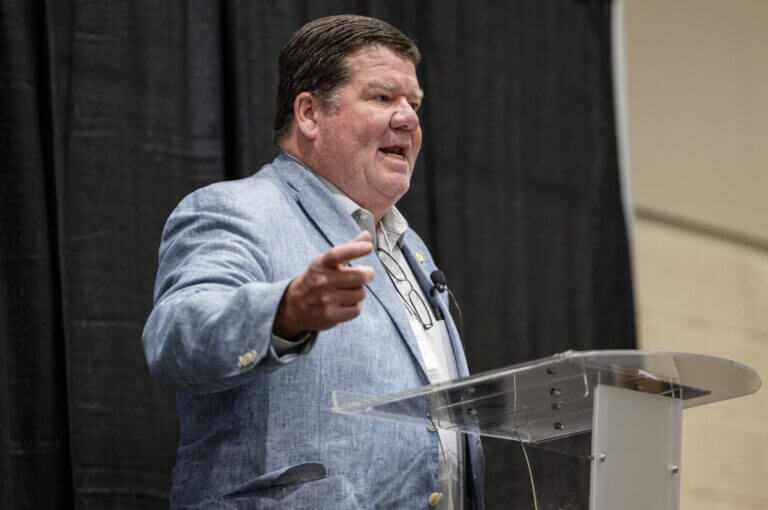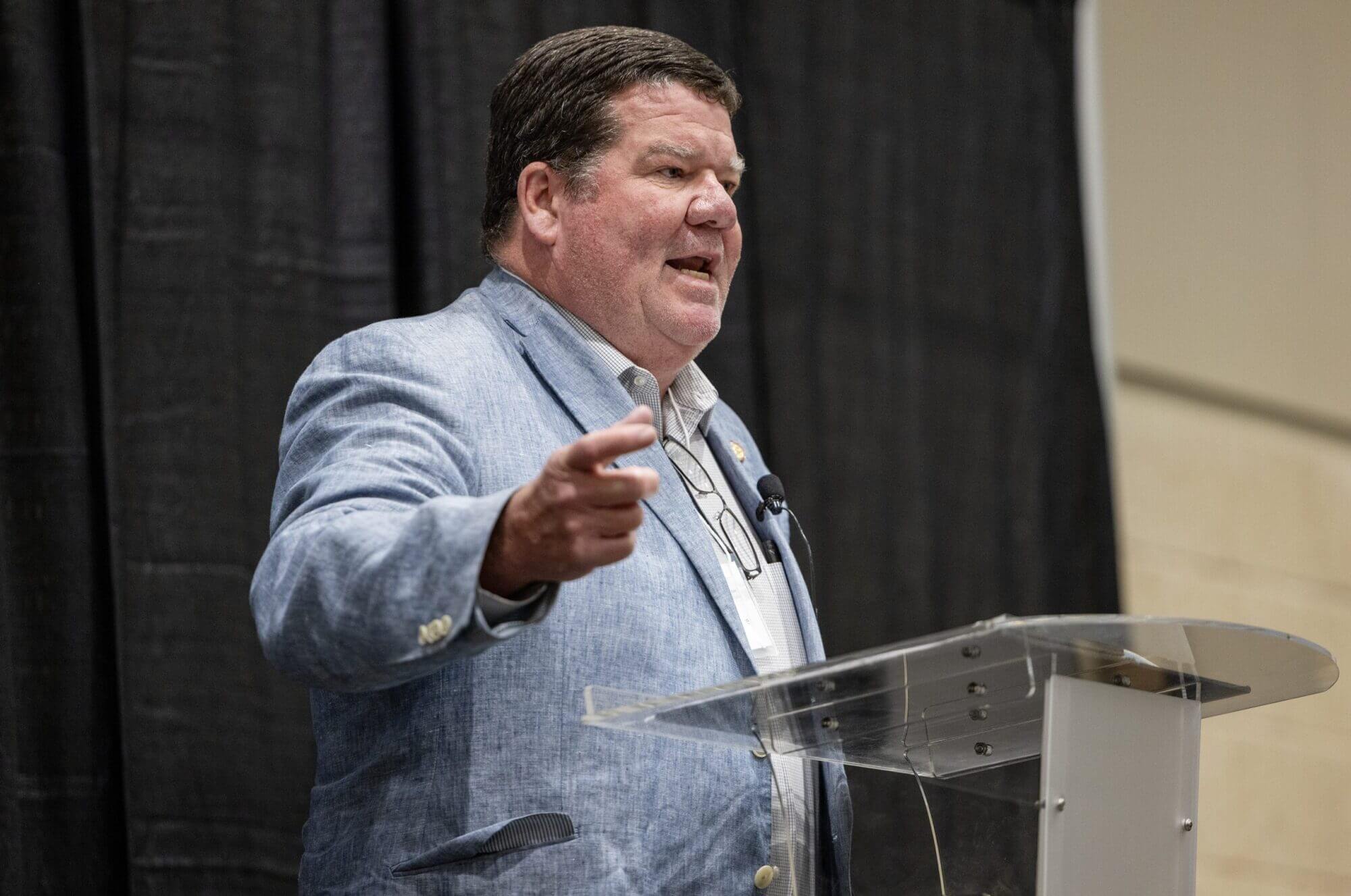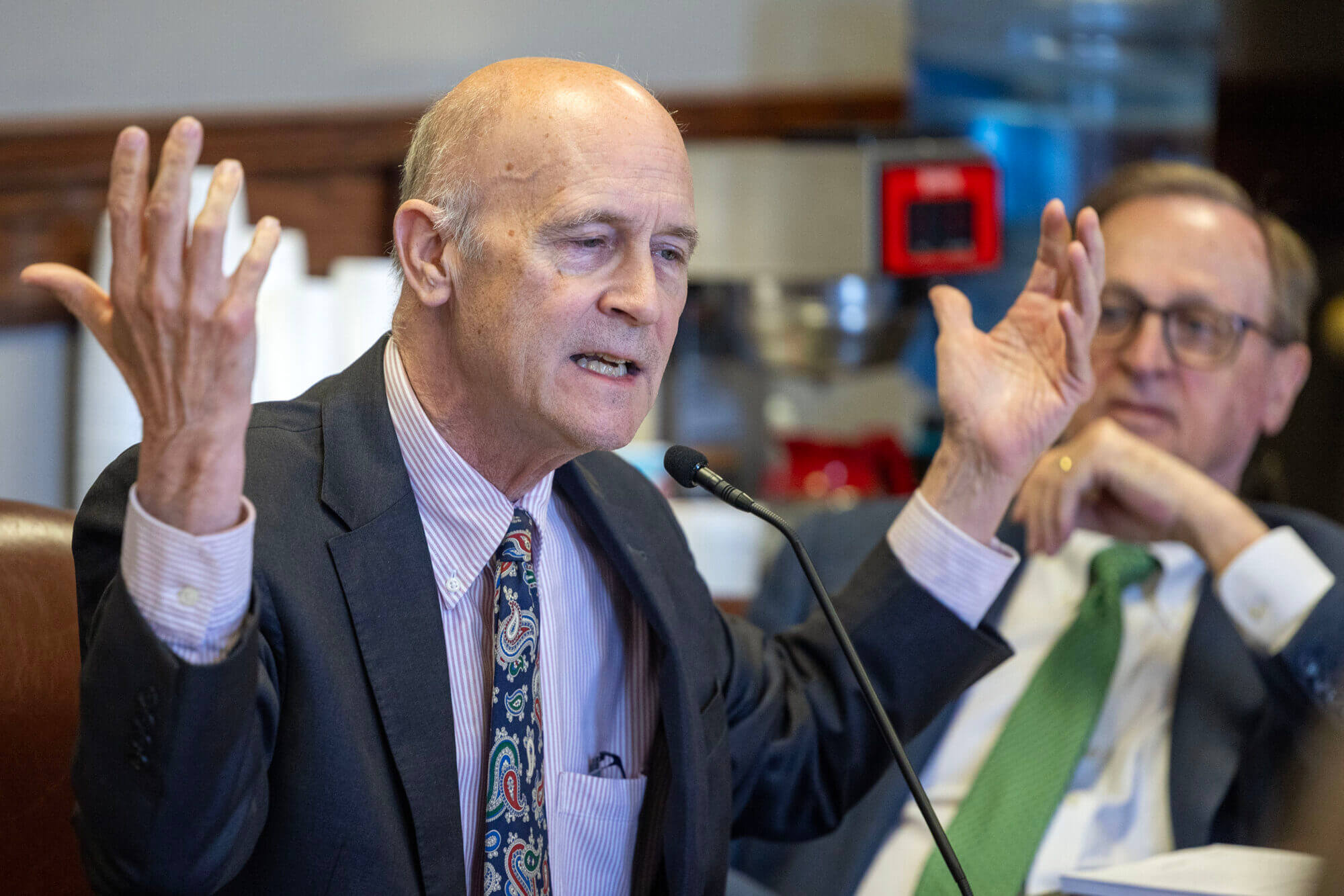

One of the state’s two top public health lawmakers told Mississippi Today he plans to take legislative action to ensure cities and counties spend opioid settlement money on addressing mental health, an issue he said was brought to light by the newsroom’s recent investigation.
In September, Mississippi Today revealed that of the over $15.5 million dollars local governments have received from corporations that helped catalyze an addiction epidemic that’s killed over 10,000 Mississippians, less than $1 million had been used to prevent more deaths. Spending on other purposes is allowed because Attorney General Lynn Fitch wrote a contract in 2021 that says towns, cities and counties can spend their settlement shares on any public purpose and don’t have to report what they do with the money.
Communities across the state are expected to get an additional nearly $48 million over the next 15 years, according to the settlements and press releases from the Attorney General’s Office. Unlike Fitch, Rep. Sam Creekmore, the Republican House Public Health and Human Services chairman from New Albany, said he believes all opioid settlement money cities and counties are receiving should be for mental health.
He said the comments on Mississippi Today’s “The Other Side” podcast, in which he also advocated for $5 million from separate state opioid settlement funds to research the addiction treatment potentials of the psychedelic drug ibogaine.
“They need to spend it, spend that money on abatement for opioid addiction, PTSD, TBI (traumatic brain injuries),” he said on the podcast. “And they need to be spending it now.”
Sen. Hob Bryan, the Democrat Senate Public Health and Welfare chair from Amory, said he would want to see this particular legislation before endorsing it. But in general, he said he supports Creekmore’s efforts to help local governments spend settlement money to address the crisis.

Attorneys general and legislatures in some states have provided this type of guidance on settlement spending for their towns, cities and counties. Tricia Christensen, a Tennessee consultant who advises states on how to spend opioid settlement money to prevent more overdoses, said in August these types of guides are effective at encouraging local governments to address addiction.
She said North Carolina’s version, a series of 90 detailed frequently asked questions, provides direct steps for how any local government could spend money for treatment, recovery and prevention.
“That’s really clear guidance for folks,” she said.
Fitch did not respond to a question Mississippi Today sent her in August asking whether she would consider creating these types of suggested guidelines. In a statement, her Chief of Staff Michelle Williams said the opioid lawsuits allow for some of states’ settlement money to be used for any public purpose, a “reimbursement” for the hundreds of billions of dollars American governments spent on the crisis throughout the 2000s and 2010s.
Creekmore also said he would consider proposing a law that requires local governments to publicly report how they spend their settlement dollars. Maine passed a similar bill in May after years of local governments spending their money with minimal public reporting.
Mississippi Today published some amount of city and county settlement spending information from all but one of the 147 local governments receiving money in its investigation, but the data is only current to the summer. Required public reporting for local settlement spending could reveal which localities have changed their plans since then.
While local government leaders are the only people who are spending Mississippi’s opioid settlement money right now, the state Legislature controls the majority of the funds, which an August record from Fitch’s office shows was around $89 million after attorneys fees. Creekmore is helping to oversee most of that money through his role on the state’s Opioid Settlement Fund Advisory Council.
The council was only established this year despite receiving these funds periodically since 2022, and the Legislature will only start distributing money for overdose prevention when the next fiscal year starts in July 2026. The delay is a big reason why Mississippi has spent less settlement money for abatement than every other state, both in terms of share percentage and total dollars.
Bryan said as Mississippi lawmakers use state and local settlement dollars, he would like to see a more comprehensive plan to address addiction — starting with knowing what Mississippi’s addiction response needs are.
Then, he said, he and other decision makers could know whether they should be focused on connecting people in recovery with jobs, expanding in-patient treatment services, supporting the Department of Mental Health’s response efforts or investing in other efforts.
“The problems of addiction don’t stop at city limits or county lines. It’s a state problem,” he said “To me, it works better if all the money is spent in some sort of coordinated fashion.”
Creekmore said he spent the week reviewing state opioid settlement applications to help end the addiction crisis, but getting to that point took longer than he intended when Mississippi received its first check. He and his fellow lawmakers have a responsibility to act quickly and effectively with the money to address a crisis that has led to the untimely deaths of Mississippians and grief from their loved ones, Creekmore said.
“We’ve not done near enough.”
- Sen. Wicker writes to Kristi Noem opposing feared ‘ICE warehouse’ in Byhalia - February 4, 2026
- House votes to legalize online sports betting and divert $600M to pension system - February 4, 2026
- Lawmakers push bills to heighten transparency for rural health federal funding - February 4, 2026